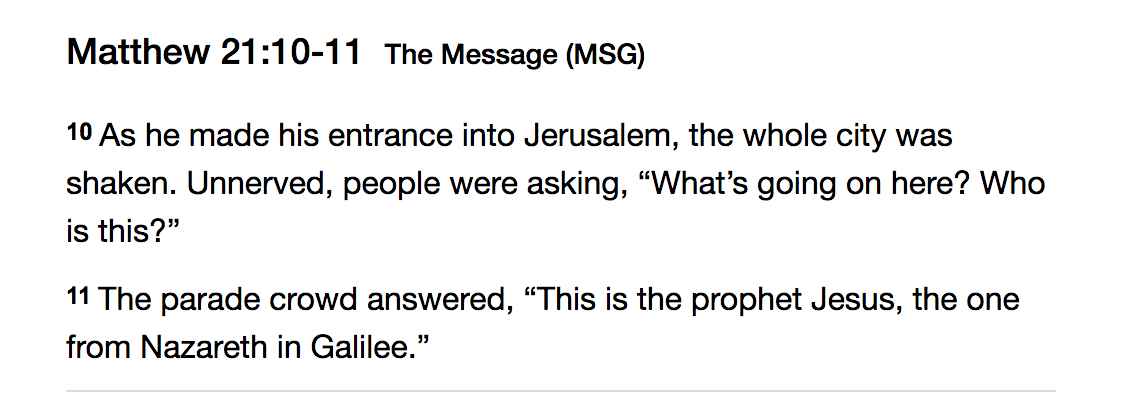We are not built for everyone’s bad news, or are we?
Day after day, bad news streams into our lives.
Just this week:
 What does “good” really mean?
Today, let’s place ourselves in the climax of Jesus’s story: the Crucifixion, reading in Matthew 27:32-66. Download this simple guide and join me in reading through this in Lectio Divina tradition.
After reading, did you find the good in Good Friday? In order to do this, I had to ask myself one question:
What does “good” really mean?
Today, let’s place ourselves in the climax of Jesus’s story: the Crucifixion, reading in Matthew 27:32-66. Download this simple guide and join me in reading through this in Lectio Divina tradition.
After reading, did you find the good in Good Friday? In order to do this, I had to ask myself one question:
 In the same breath of anguish, we read in Luke’s account (Luke 23:46) that Jesus accepts, surrenders and finishes the work He was called to do:
In the same breath of anguish, we read in Luke’s account (Luke 23:46) that Jesus accepts, surrenders and finishes the work He was called to do:
 To many, Jesus was “just a prophet.” But to others, he was the promised Messiah.
Who is Jesus to you? I’ve been asking myself that question all week.
The answer to that question reveals everything, doesn’t it?
The answer gives insight into how we find the good in Good Friday—and every day that follows.
Join me today, over on our Be Remarkable Women private Facebook page, where we will talk more about finding the good in Good Friday. I can’t wait!
To many, Jesus was “just a prophet.” But to others, he was the promised Messiah.
Who is Jesus to you? I’ve been asking myself that question all week.
The answer to that question reveals everything, doesn’t it?
The answer gives insight into how we find the good in Good Friday—and every day that follows.
Join me today, over on our Be Remarkable Women private Facebook page, where we will talk more about finding the good in Good Friday. I can’t wait!

- A 22,000 lb. bomb, known as “The Mother of all Bombs (MOAB),” was dropped in the Achin district of Nangarhar province in eastern Afghanistan. An attack on ISIS.
- Islamic extremists bomb two churches in Egypt on Palm Sunday. Forty-five Coptic Christians die.
- Fifty-year old teacher, Tad Cummins, runs away with fifteen-year-old troubled teenage student.
 What does “good” really mean?
Today, let’s place ourselves in the climax of Jesus’s story: the Crucifixion, reading in Matthew 27:32-66. Download this simple guide and join me in reading through this in Lectio Divina tradition.
After reading, did you find the good in Good Friday? In order to do this, I had to ask myself one question:
What does “good” really mean?
Today, let’s place ourselves in the climax of Jesus’s story: the Crucifixion, reading in Matthew 27:32-66. Download this simple guide and join me in reading through this in Lectio Divina tradition.
After reading, did you find the good in Good Friday? In order to do this, I had to ask myself one question:
- Is my definition of “good” the same as God’s definition of “good”? Read how God redefined “good” for me in December 2013: God Redefines Good.
Good defined (n), “profit or advantage; worth; benefit.”How we answer this question tells us everything. It reveals how we perceive God and ultimately reveals how we perceive our day-to-day life. Complex and simple all at the same time. In Lectio Divina, Author and Spiritual Director, Christine Valters Paintner helps us out here. I see her equating “good” with “contentment,” and in doing so, helps us see the good in Good Friday:
Contentment doesn’t mean we are always happy about life events or deny the reality of pain. We cultivate contentment by cultivating the inner witness who is able to respond to life from a place of calmness, peace and tranquility. It means we honor what is given us in any moment is enough. So it is the ‘still heart’—the heart of equanimity—that can welcome everything in. Instead of always living with a sense of dissatisfaction about our lives, or anticipation over what comes next, we live in the knowledge that this moment contains everything we need to be at peace, to experience freedom, to develop compassion for ourselves and others, to find God.”Finding the good in Good Friday. So, then, how do we find the good in Good Friday? It looked like “bad news” when in fact, it was good news. How can this be? How is there anything good in this tragic, horrific act of violence towards a man who had done nothing but fulfill his purpose? In the Garden of Gethsemane, Jesus cries out to his Father:
 In the same breath of anguish, we read in Luke’s account (Luke 23:46) that Jesus accepts, surrenders and finishes the work He was called to do:
In the same breath of anguish, we read in Luke’s account (Luke 23:46) that Jesus accepts, surrenders and finishes the work He was called to do:
 To many, Jesus was “just a prophet.” But to others, he was the promised Messiah.
Who is Jesus to you? I’ve been asking myself that question all week.
The answer to that question reveals everything, doesn’t it?
The answer gives insight into how we find the good in Good Friday—and every day that follows.
Join me today, over on our Be Remarkable Women private Facebook page, where we will talk more about finding the good in Good Friday. I can’t wait!
To many, Jesus was “just a prophet.” But to others, he was the promised Messiah.
Who is Jesus to you? I’ve been asking myself that question all week.
The answer to that question reveals everything, doesn’t it?
The answer gives insight into how we find the good in Good Friday—and every day that follows.
Join me today, over on our Be Remarkable Women private Facebook page, where we will talk more about finding the good in Good Friday. I can’t wait!


